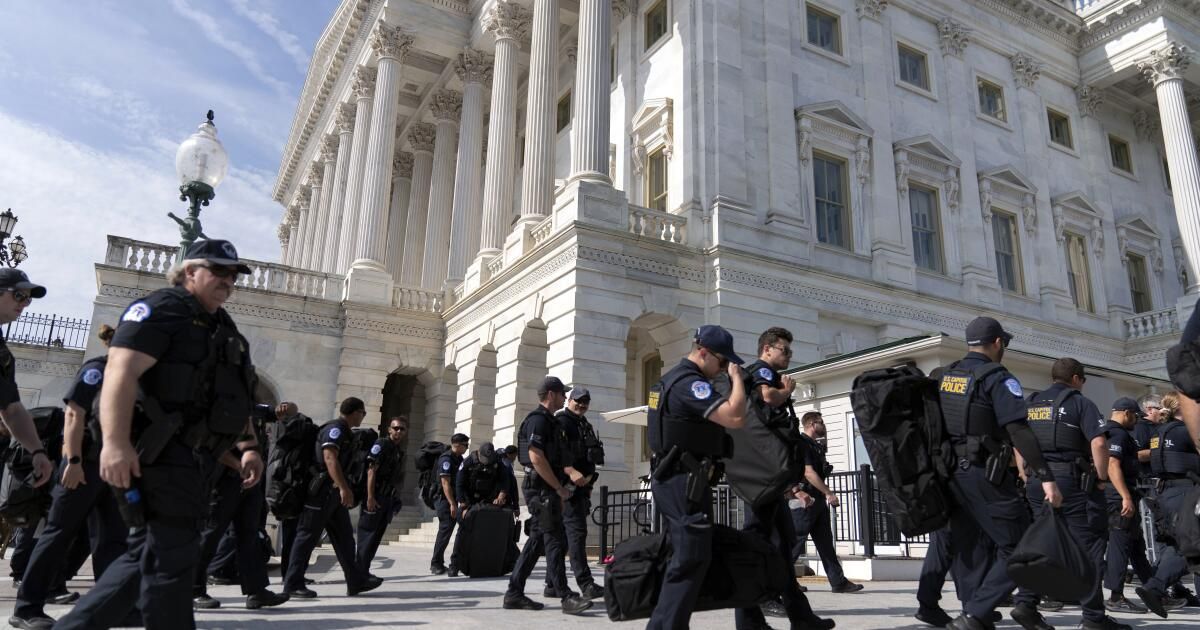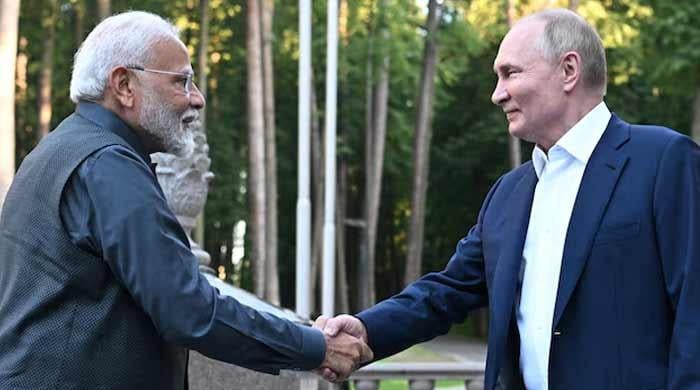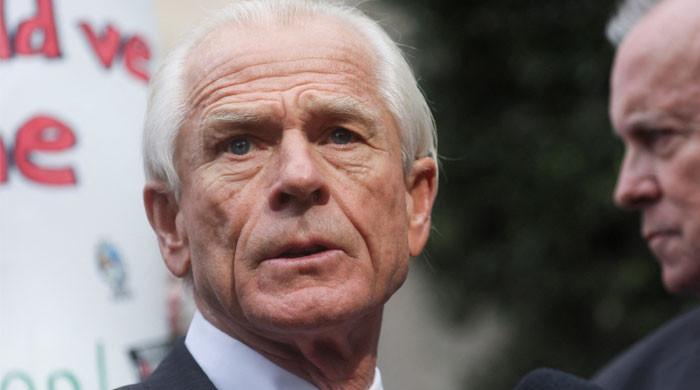At a time when Democrats are trying to unify around a new presidential candidate, a foreign leader who divides them — and many Americans — has arrived in the nation's capital.
Israeli Prime Minister Benjamin Netanyahu, one of the world’s most polarizing leaders, will address Congress on Wednesday. He came to Washington at the invitation of Republican lawmakers, bypassing the White House, just as he did in 2015 to illustrate his contempt for then-President Obama.
If Netanyahu intended with this trip to cast similar ignominy on President Biden, whom the Israeli leader has falsely accused of withholding arms shipments, then it was overshadowed by Biden’s momentous decision on Sunday to drop out of the presidential race. It remains to be seen how that will change Netanyahu’s game plan and how the administration decides to deal with his intrusion into American politics.
In liberal California, home to large and influential Jewish and Arab-American communities, Netanyahu's visit has sown division in the congressional delegation.
Many of the state’s Democrats are expected to join dozens of their colleagues across the country in boycotting the speech. Some members have organized additional events on Wednesday, including one that will take place during Netanyahu’s speech.
Vice President Kamala Harris, the all-but-certain Democratic presidential nominee, will not attend the speech but will hold a private meeting with Netanyahu on Thursday.
Israeli Prime Minister Benjamin Netanyahu faced criticism at home and abroad for his handling of the Gaza war at a cabinet meeting in December.
(Ohad Zwigenberg/Associated Press)
Netanyahu has been heavily criticized for his handling of the war in the Gaza Strip, which began after the Palestinian militant group Hamas attacked southern Israel on Oct. 7, killing some 1,200 people and taking more than 250 hostages.
Since then, the number of Palestinians killed in Israeli airstrikes, shelling and ground invasions has surpassed 39,000, according to the Gaza Health Ministry, which did not specify how many of them were combatants and how many were civilians. There is broad international consensus that a large number are women and children.
Biden quickly offered unconditional support to Israel and Netanyahu in October, though as the war dragged on he publicly urged the right-wing Israeli government to take greater care to avoid civilian casualties and agree to a ceasefire deal that would also see the release of Israeli hostages still held by Hamas.
Still, Biden's support for Israel cost him politically at home, among his core voters, and abroad, where the United States is seen as complicit in what some governments say is genocide in Gaza.
Washington gives Israel more than $3 billion in aid each year, a figure that has tripled since October 7 with the massive arms shipment.
Netanyahu is expected to use his speech on Wednesday to demand more aid and more weapons, without delay or obstacles. Biden stopped a single shipment of 2,000-pound bombs this year as Israel threatened to attack the southern Gaza city of Rafah, where about a million Palestinians were sheltering.

President Biden meets with Netanyahu in Tel Aviv days after Hamas' attack on Israel on October 7.
(Evan Vucci/Associated Press)
The issue has proven problematic for many Democratic members of Congress, who draw a clear distinction between support for Israel and support for Netanyahu.
Before Netanyahu's speech, Rep. Mark Takano (D-Riverside) was scheduled to be part of a group of lawmakers meeting with Israeli citizens whose relatives were kidnapped on Oct. 7.
In a statement, Takano said he debated for weeks whether to attend the speech before deciding not to.
He said he believes Republicans gave Netanyahu the platform to further sow division among members of Congress and accused the Israeli leader of prolonging the conflict, ignoring pleas from his own citizens to focus on bringing home the remaining hostages and dismissing concerns from the U.S. and other allies about the cost of the war on Palestinian civilians.
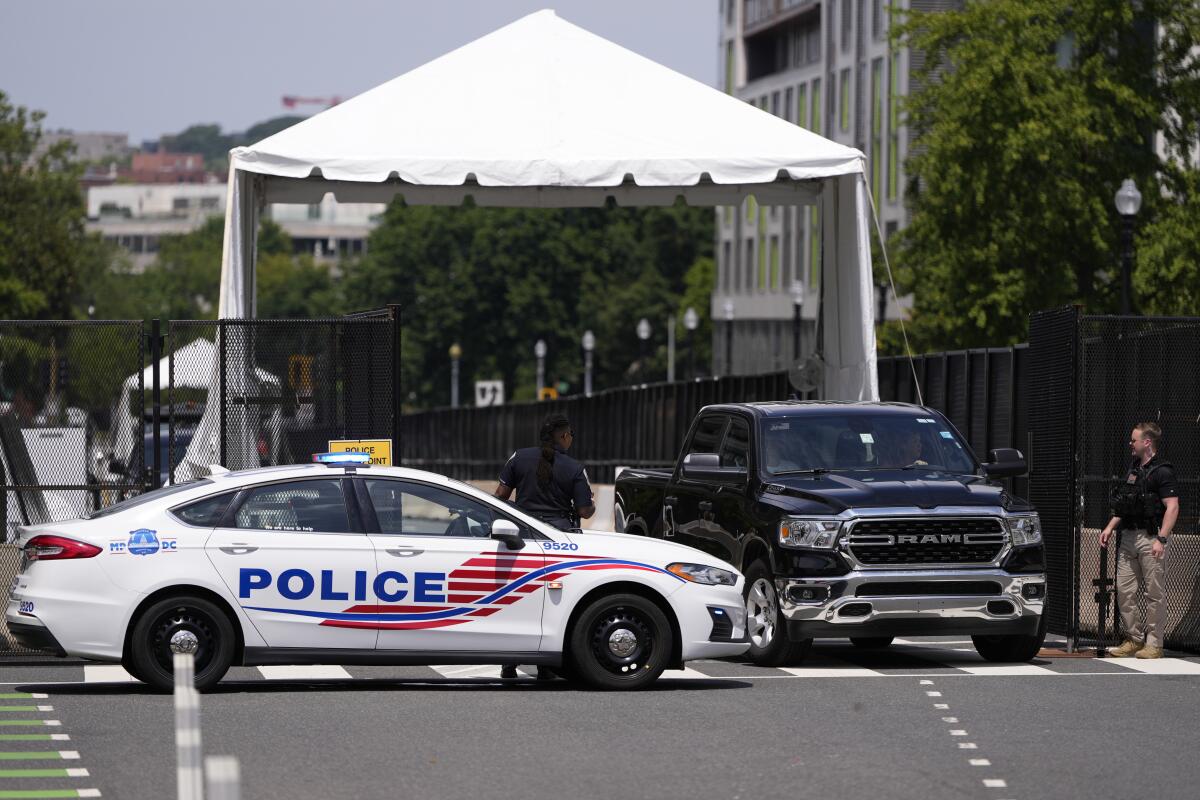
Law enforcement officers gather outside the Watergate Hotel in Washington a day before Netanyahu's address to Congress.
(Matt Slocum/Associated Press)
“In recent months, I have become increasingly concerned by Mr. Netanyahu’s actions, which have sought to promote his own political survival rather than secure the return of the hostages and a much-needed ceasefire,” he wrote.
Rep. Mike Levin (D-San Juan Capistrano), who has called for a change in Israeli leadership, said he would attend Netanyahu's speech anyway.
Levin has the backing of the American Israel Public Affairs Committee, known as AIPAC, an influential pro-Israel group that has launched campaigns across the United States to oust candidates who criticize Israel's actions in the war between Israel and Hamas.
“Whenever an ally, like Israel, is an important ally, I think it’s important for members of Congress to attend,” Levin said. “Not necessarily in support of the leader of that nation, but rather in support of the people of that nation and the important relationship that the democratic Jewish state of Israel has with the United States.”
Netanyahu last spoke before Congress in 2015, amid a tense relationship with Obama. Vice presidents typically host joint speeches, but then-Vice President Joe Biden was traveling and did not attend.
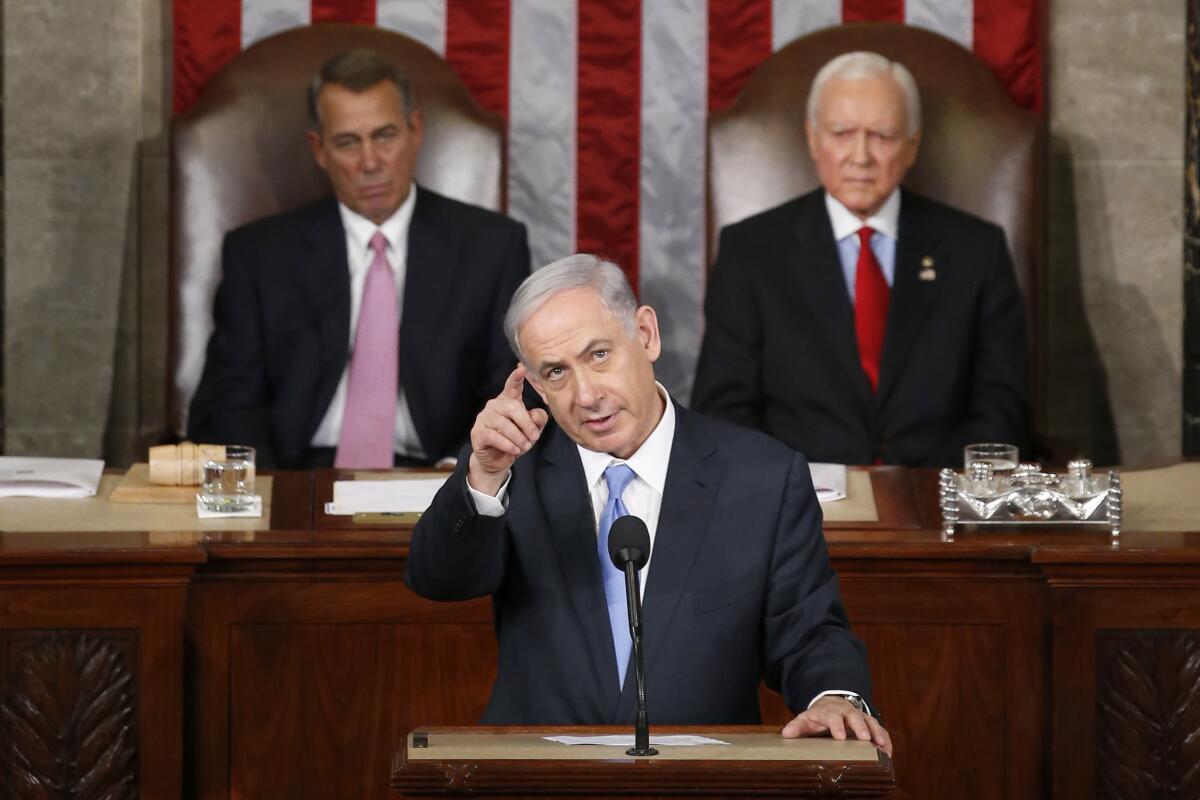
Netanyahu spoke before Congress in 2015 at the invitation of Republican lawmakers, bypassing the White House, just as he did this year.
(Andrew Harnik/Associated Press)
On that occasion, the White House was not informed in advance that Congress had invited Netanyahu to speak, which the administration said was damaging to the US-Israel relationship. It was part of Netanyahu’s long campaign to undermine decades of bipartisan US support for Israel and turn his political goals into an openly Republican cause.
Shortly after President Trump took office, he reversed decades of American policy by moving the U.S. embassy from Tel Aviv to the disputed city of Jerusalem. He also recognized Israel’s claim to sovereignty over the Golan Heights, fertile land Israel seized from Syria, and said he approved of Jewish settlements on land claimed by Palestinians in the West Bank. Most of the international community considers the settlements illegal.
Rep. Adam B. Schiff (D-Burbank) said before the 2015 event that it was “unseemly” to invite a foreign head of state to speak against White House policy but that he would be a “gracious host.”
“The strength of the U.S.-Israel relationship has always been, at its core, a very bipartisan relationship,” Schiff said at the time. “I think anything that threatens to jeopardize that is not good for the United States or for Israel.”
Schiff's office confirmed he will also attend Netanyahu's speech on Wednesday, but did not make the congressman available for an interview.
Meanwhile, other members planned to boycott the speech. The office of Rep. Barbara Lee (D-Oakland), who has called for an immediate ceasefire in Gaza, confirmed Wednesday that she would not attend. Lee also skipped Netanyahu's 2015 speech.
Rep. Ami Bera (D-Elk Grove) said in a statement Tuesday that he decided “after hearing from the families of American hostages held by Hamas” — most of whom are deeply angry with the prime minister — not to attend Netanyahu’s speech. Bera urged Netanyahu to accept the ceasefire agreement brokered by Biden.
Rep. Ro Khanna (D-Fremont) He told NBC last month that he would not attend.
“I told him that if he wants to come and talk to members of Congress about how to end the war and free the hostages, I have no problem doing that,” he said. “But I’m not going to sit there and listen to a one-way lecture.”
In 2015, dozens of members decided not to attend Netanyahu's speech in protest at how the speech had been politicized.
Others, including Rep. Nancy Pelosi (D-San Francisco), then the House minority leader, made their disagreements clear from within the chamber. The Times reported that when Netanyahu railed against what he considered a “bad deal” negotiated by Obama with Iran, Pelosi sat back and threw up her hands.
This week’s protests over Netanyahu’s presence extend far beyond Congress. Thousands of Jewish and Arab Americans have gathered in the nation’s capital to make their voices heard — protesting Israel’s war in Gaza, questioning U.S. policy in the region and expressing anger at the welcome of a prime minister whom prosecutors at the International Criminal Court want to arrest and charge with war crimes.

